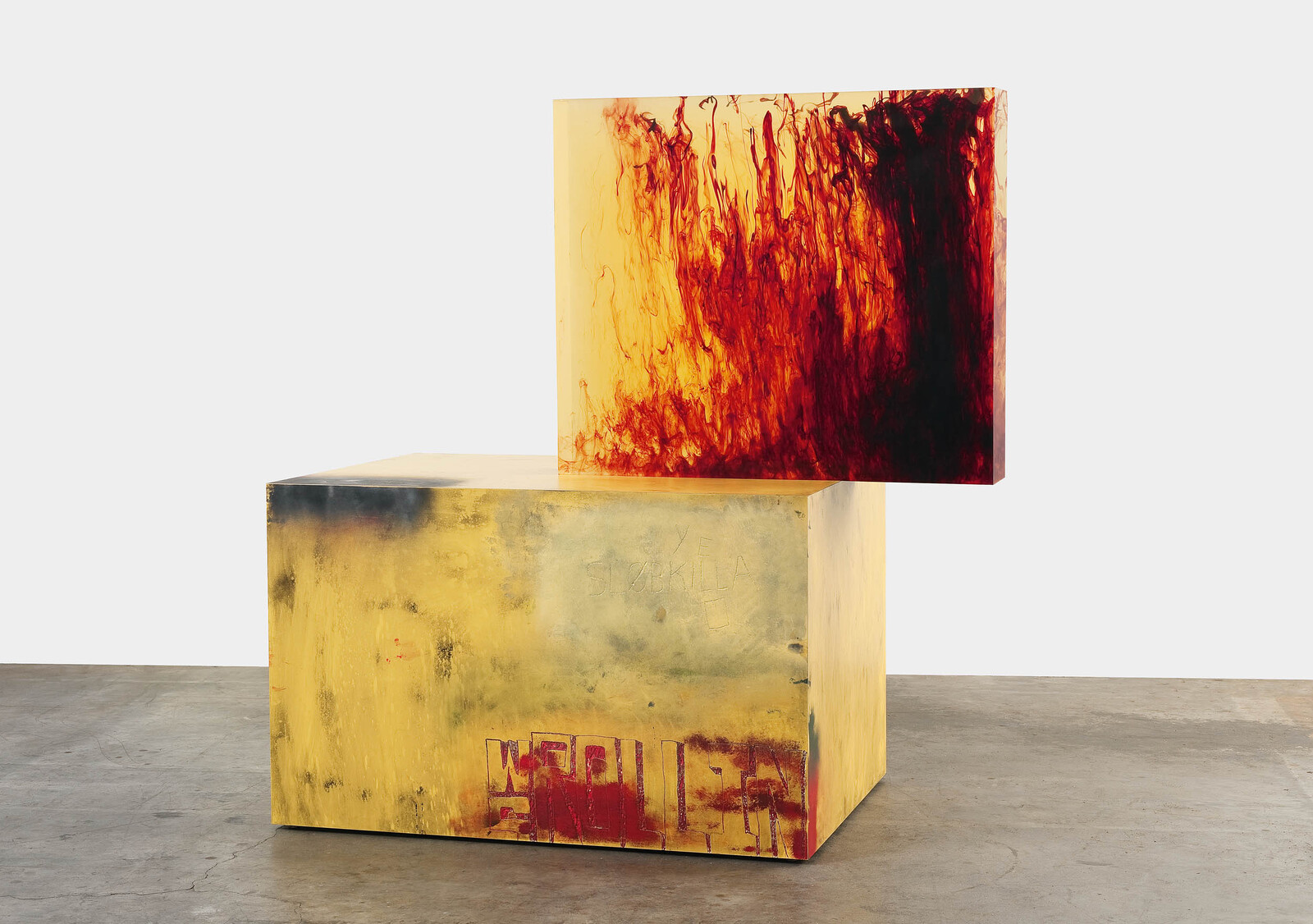November 7, 2019–February 2, 2020
61 NE 41st Street
Miami, Florida 33137
United States
Hours: Tuesday–Sunday 11am–7pm
hello@icamiami.org
ICA Miami presents the first comprehensive museum survey for American artist Sterling Ruby. The exhibition features over 100 works that demonstrate the relationship between material transformation in Ruby’s practice and the rapid evolution of American culture, institutions, and labor. Spanning more than two decades of the artist’s career, the exhibition features an array of works created in various mediums, from his renowned ceramics and paintings to lesser-known drawings and installations. Sterling Ruby is co-presented with the Institute of Contemporary Art/Boston (ICA/Boston), and is accompanied by an illustrated scholarly catalogue edited by Alex Gartenfeld and Eva Respini, with an interview by Isabelle Graw. Sterling Ruby is curated by ICA Miami Artistic Director Alex Gartenfeld and ICA/Boston Barbara Lee Chief Curator Eva Respini.
Since his earliest works, Ruby has investigated the role of the artist as outsider. Critiquing the structures of modernism and traditional institutions, Ruby addresses the repressed underpinnings of U.S. culture and the coding of power and violence. Craft is central to his inquiry, as he explores traditions from Amish quilt-making to California’s radical ceramics tradition, shaped by his upbringing in Pennsylvania Dutch country. Organized by chronology and medium, Sterling Ruby considers the artist’s explorations of these themes across the many materials and forms he has utilized throughout his practice.
Sterling Ruby begins with the artist’s collages, drawings, and prints, which continuously explore the personal and cultural subconscious through a kind of “illicit merger.” Early in his career, Ruby often employed two-dimensional mediums to elaborate on recurrent subjects including the nation’s prison-industrial complex and maximum-security prisons. In a large series of works, among them CDC at PDC Study (2008), Ruby combines images of prisons and pastes them on top of orange paper, referencing the color of correctional facility uniforms. The exhibition also features two-dimensional works that demonstrate Ruby’s captivation with the American home, as seen in Quilt/Body Snatchers (2004), in which he overlays a still from the B horror film Invasion of the Body Snatchers (1978) on a Pennsylvania Dutch quilt.
The exhibition additionally considers the tension of expression and repression that defines our recent history, particularly through Ruby’s monumental urethane works, which he began making in response to the scale limitations of ceramics. For the artist, these sculptures serve to disrupt the minimalist structures of museums—another perceived product of institutionalization. The exhibition includes several works from Ruby’s Monument Stalagmite series, towering sculptures created by a time and labor-intensive process. This includes Monument Stalagmite/The Shining (2011), which features dripped red dye that takes on the appearance of blood and refers to an iconic scene in Stanley Kubrick’s film adaption of Stephen King’s novel The Shining (1980).
Further exemplifying the artist’s interest in craft, Sterling Ruby includes a selection of the ceramics for which he is widely known. Influenced by his mother’s collection of pottery and dishware, Ruby’s ceramics represent the artist’s probing of figurative forms, gesture and immediacy, and display hand-worked characteristics, but are not intended to serve functional purposes. “The Basin Theology” series, on view in this exhibition, contain key elements of previous destroyed ceramics that have broken in the kiln, an example of Ruby’s spirit of invention and reuse.
Another of Ruby’s signature materials, spray paint, is represented across several series and represents the artist’s blurring of high and low culture. Influenced by graffiti culture, works from the artist’s series of monumental spray-painted canvases, entitled SP, are reminiscent of landscapes—frequently evoking sceneries plagued by environmental destruction. While SP131 (2010) implies the image of a vibrant sky tarnished with toxic pollution, SP242 (2013) appears as a horizon enveloped with smoke, as seen in developed industrial landscapes or during devastating wildfires in California.
Ruby’s soft sculptures—formed from various fabrics stuffed with fiberfill—occupy a complex place within the artist’s practice, invoking craft and flag-making as well as horrific cartoons. As a result of growing up in a family of seamstresses and his exposure to quilting communities in rural Pennsylvania during his childhood, Ruby began reusing scraps of leftover textiles to create his VORTEX, LEATHERETTE, QUILT and FLAG series. The exhibition places these works in dialogue with other soft sculptures fashioned from American-flag patterned fabric, including DOUBLE CANDLE (6992) (2019) and Double Vampire (2013).
Sterling Ruby (b. 1972, American/Dutch) has presented solo exhibitions at the Museum of Contemporary Art, Los Angeles (2008); Galleria d’Arte Moderna e Contemporanea, Italy (2008–09); Museo d’Arte Contemporanea, Rome (2013); and Baltimore Museum of Art, Maryland (2014); and the Belvedere, Vienna (2016); among others.

